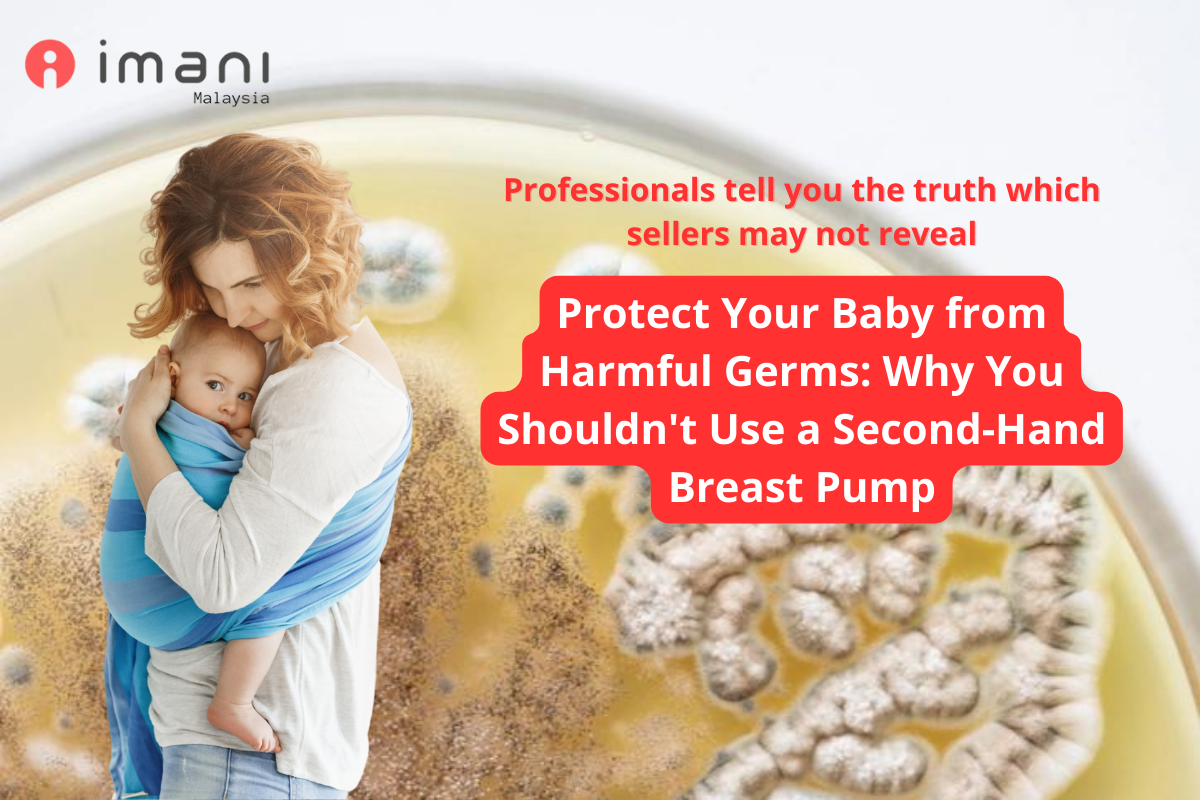Why a Used Breast Pump is a Risky Investment: What Every Nursing Mom Should Know
— Let the experts tell you the truth that the sellers hide from you.
Text/Photo: Dr Blue, Founder of J&J Baby, Educational Psychology, Lactation Counselor, Former Chemist
Electric breast pumps are widely and commonly used by breastfeeding mothers nowadays due to the convenience, mobility and efficiency, especially working mothers, their first choice will always be the hands-free breast pumps. Some of us might not want to spend so much on a new breast pump since it will no longer be used after breastfeeding, hence the trend of ‘buying & selling second-hand breast pumps’ begins. But, will there be any risk by using second-hand electric breast pumps in terms of safety and hygiene?
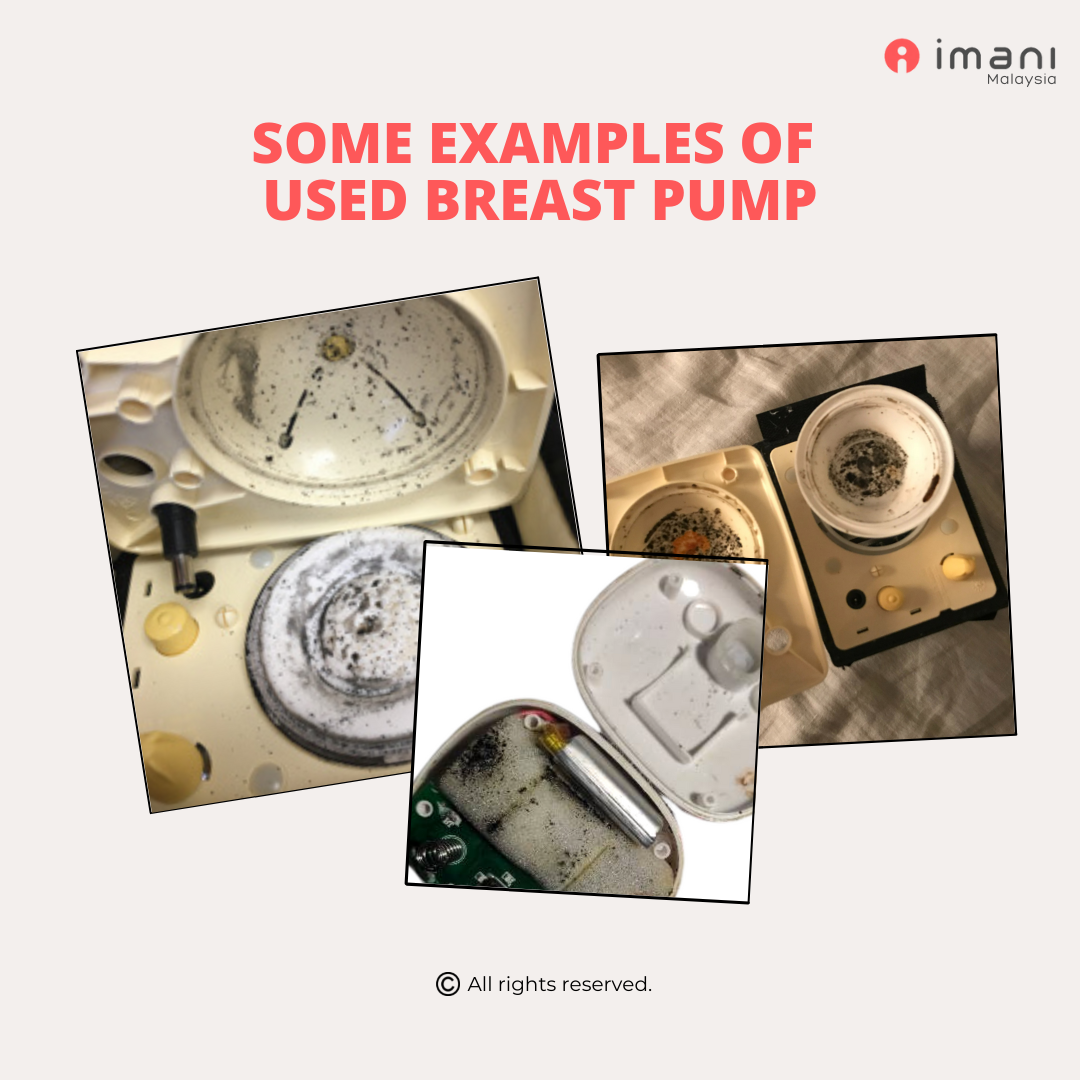
Risks of second-hand breast pumps
1. Cause of cross infection:
Bacteria and viruses can be spread through breast milk and can be transmitted through breast pumps, which will endanger the health of the baby and mother, and cause the baby to fall sick.
All wearable/hands free breast pumps are "open system". Although there is a barrier to prevent back-flow, it is directly attached to the breast and has no ducts, milk or moisture may still enter the main body parts of the pump and cause the growth of bacteria, mold and viruses.
Incorrect posture will cause milk to flow into the breast pump too. Some of the sellers mislead mothers to lie down while breast pumping for the sake of performance.
Diseases such as HIV AIDS, hepatitis virus (hepatitis B), cytomegalovirus, fungi and bacteria can be transmitted through breast milk or blood.
2. Ineffective ~ Second-hand breast pumps have a limited lifespan:
The lifespan of a personal-grade breast pump is about eight months to a year.
The parts of a second-hand breast pump, especially the motor, is often worn out when they are sold, hence the outcome is always unsatisfactory. The pump will not stop working out of a sudden, the suction cycle mechanism wears out slowly.
Many mothers seek our help or blame the breast pump for its poor quality, but the truth is the pump has already worn out when they purchase it from the previous owner.
3. It is easy to cause damage to mothers
Every mother has a different tolerance level towards the pumping frequency, most of the second-hand breast pumps are not personalized to their needs, which may easily cause damage to their bodies.
4. Personal-grade second-hand breast pumps are not under warranty
Most mothers are not aware that second-hand personal grade breast pumps are not under warranty. As a personal-grade breast pump can only be used by one person and the warranty is not transferable.
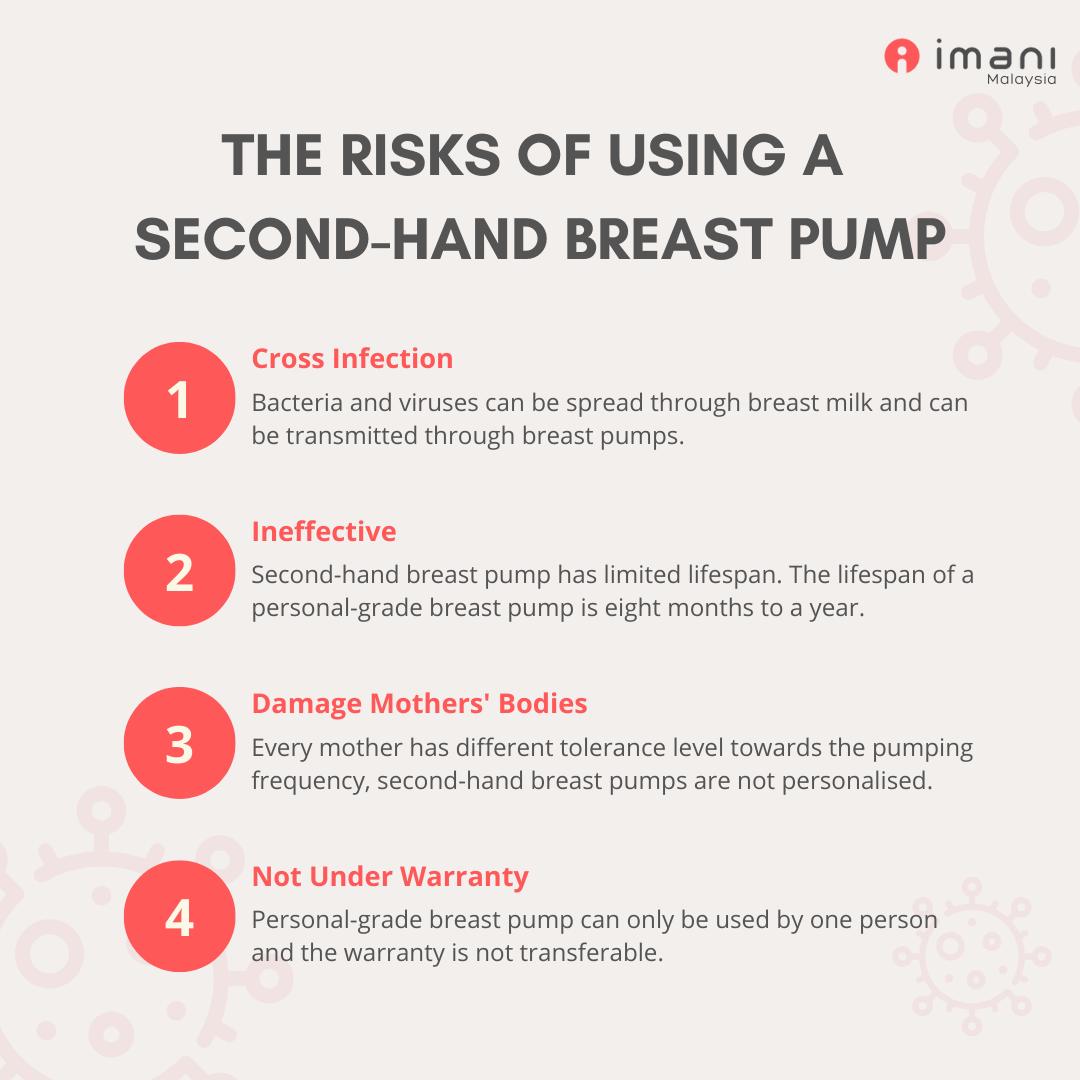
What breast pump can't be bought second hand?
All personal grade breast pumps are not recommended for second hand use, especially hands-free wearable types.
Similar to our inner wear, breast pumps can only be used by one person and cannot be shared.
Even a breast pump with a tube can cause mold, what do you think about the breast pump that is directly attached to the breast.
A breast pump is wore closely on breast and is used to suck out the fluid from nipple, just like the inner wear stained with someone else body fluids. Would you dare to wear it?
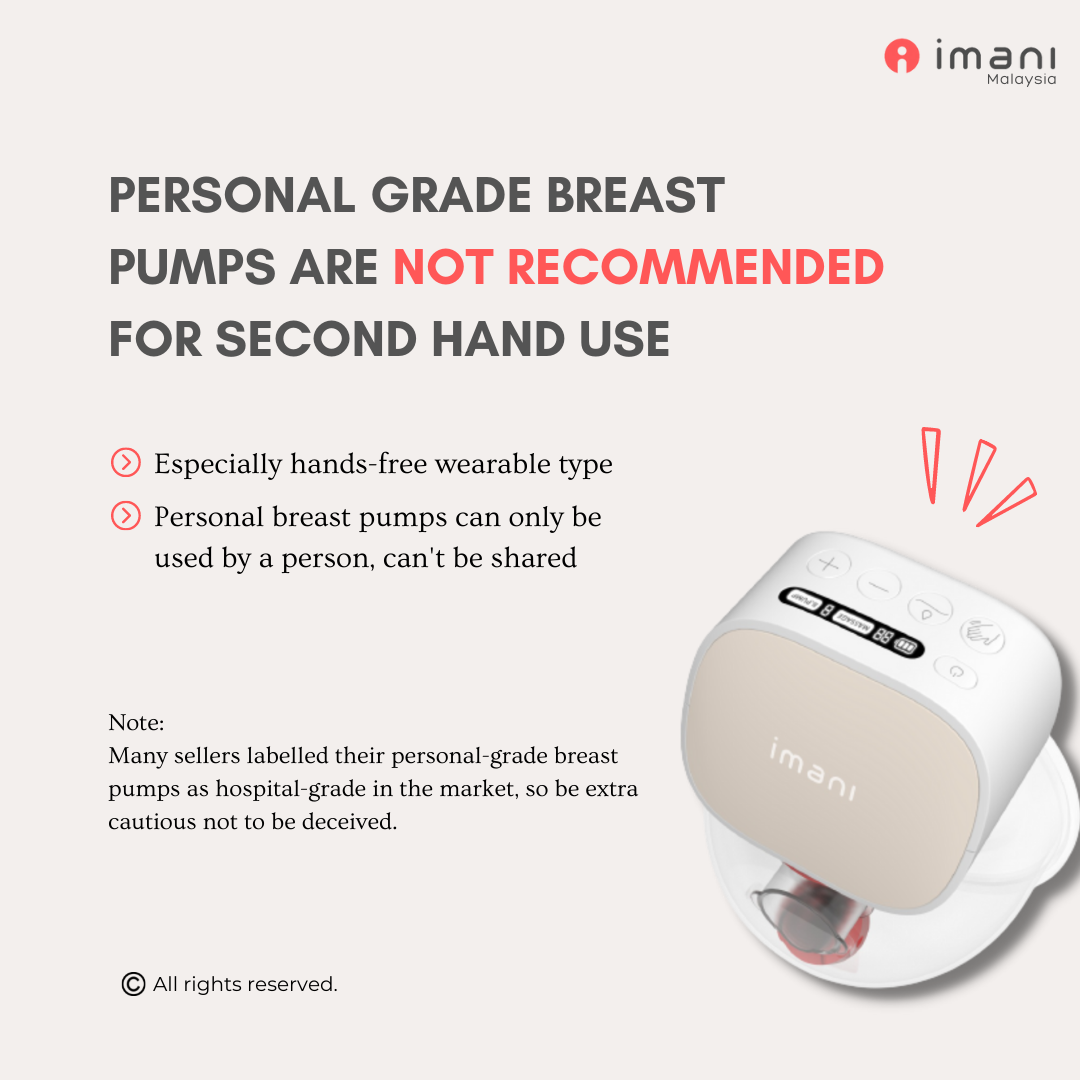
What breast pumps can be shared?
Hospital grade breast pump with closed system.
Except for the main unit, all consumable parts such as conduit, funnel, duckbill valve, feeding bottle, etc., need to be replaced with new ones.
The host must be sterilized & disinfected. You may get some disinfectant tablets from the hospital or clinic, dissolve the tablets in water and wipe the host.
We would still encourage avoiding second-hand breast pumps and buying new ones whenever its possible.
Note: Many sellers labeled their personal-grade breast pumps as hospital-grade in the market, so be extra cautious not to be deceived.
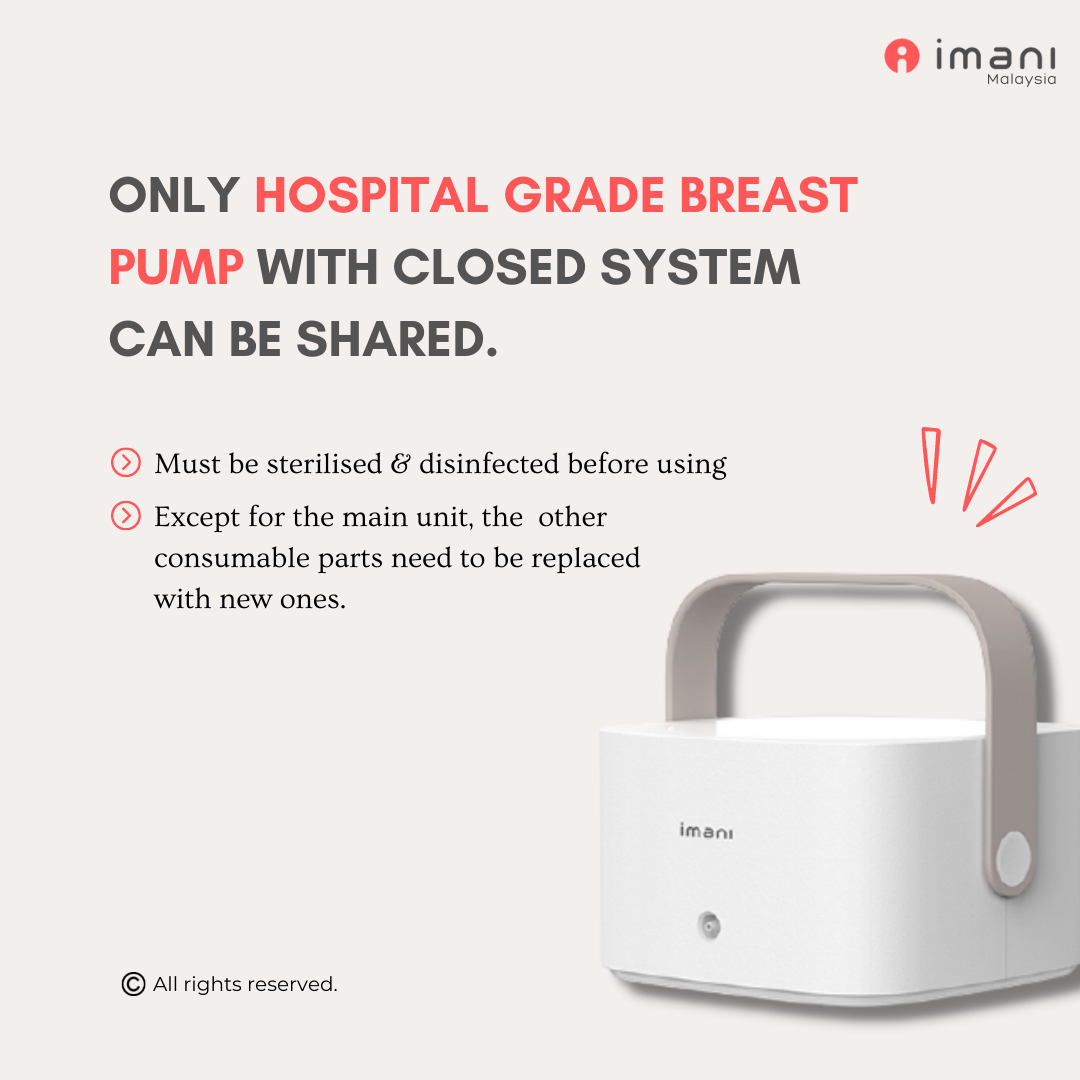
Ask yourself some questions before buying a used breast pump:
Are you comfortable wearing someone else's inner wear, or using someone else's toothbrush? (If this is not acceptable, you can directly skip question 2, 3, 4, 5)
Are you familiar with the person's medical history?
Do you know her usage of the pump?
Are you aware of her hygiene habits?
Do you know her personality? Will she lie to you?
Are you prepared to spend more?
Are you comfortable with wearing someone else's underwear, or using someone else's toothbrush?
Some of you might say, it can be used after washing. But please allow yourself to rethink, are you sure? It’s the same concept as a breast pump, especially the wearable hands-free breast pump.
Are you familiar with the person's medical history?
How familiar are you towards her health condition? Does she have any diseases? (Hepatitis B, AIDS, etc.)?
She herself may not even know if she suffers from certain diseases. Hence, it’s not worth saving a small amount of money by putting you and your baby’s health at risk.
Do you know her usage of the pump?
Take one common example: when we buy a second-hand car, we are often worried of buying a car from an owner who does not take care, maintain or even repair it from time to time, all these small actions will lead to numerous big problems.
To be very frank, the motor and other parts will surely damage or wear out to some extent after using it for a few months. Many mothers like power pumping, can you imagine the consequences of speeding a motorcycle as a Mercedes? Excessive usage shortens the life of the breast pump.
Are you aware of her hygiene habits?
For example, how often she changes or rewear her inner wear, throwing rubbish on the street, etc.
Does it matter? Of course it is. Her hygiene habits indicate how she used or took care of the breast pump. If a person doesn't bother to take care of her own hygiene, do you think she will take care of the breast pump that is about to be sold?
Even if the external part of the pump looks clean (perhaps she has already cleaned it), how about the internal part? Will there be any chance that it will look like any of the breast pumps shown in the pictures above? Full of mold and bacteria, or even small bugs.
Our maintenance team has received several breast pump main units with a lot of ants inside, even the owner herself has no clue why it happens.
Do you know her personality? Will she lie to you?
Would you believe it if she said she used the pump for only 1 or 2 times?
Almost all mothers who own used breast pumps say the same thing - my cousin/sister/relative gave it to me cause she only used it 1 or 2 times! How do you prove it?
Many of the mothers are scammed by the previous owners claiming they have only used it 1 or 2 times when the truth is the breast pump has been used for a year, sent to repair several times, and sold to others. It’s easy for us to find out by looking at the maintenance record.
Are you prepared to spend more? Risk assessment:
If you prefer buying a second-hand breast pumps just to save money, the risks that you’ll face are as below:
Injured nipples and breasts, medical bills to visit a doctor.
Delayed milk pumping time.
Cost to repair.
If it can no longer be repaired, you’re required to buy a new breast pump again.
As a result, you’ll be ending up spending more than you save from buying a second hand pump earlier.
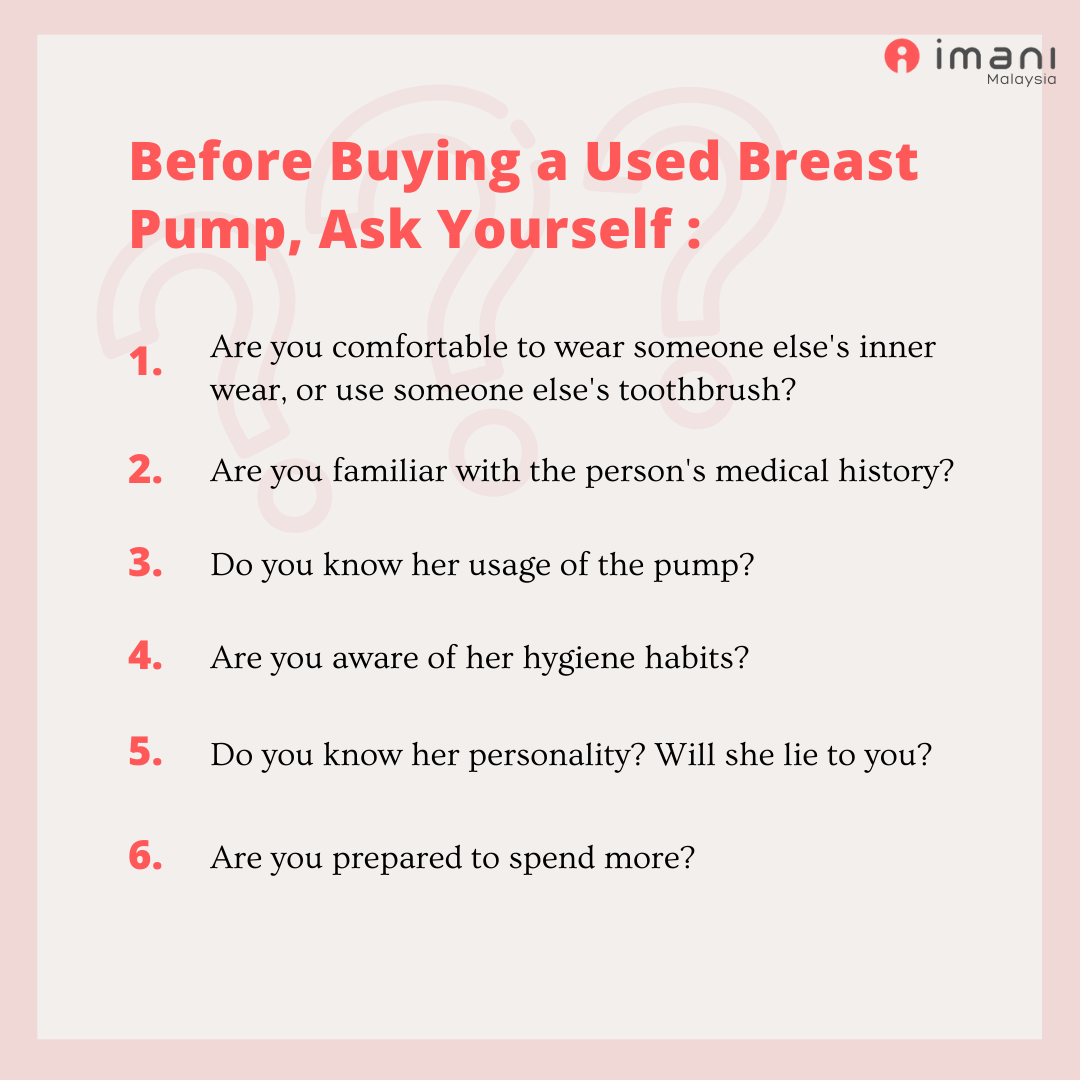
Since breast pumps can’t be sold, why should I buy a good quality yet expensive breast pump?
"If a worker wants to do a good job, he must first sharpen his tools." The purpose of a breast pump is to help you throughout your breastfeeding journey. A good breast pump protects your breast, expresses quietly without causing pain, imitates the force of your baby's sucking, and pumps milk efficiently.
"You get what you pay for". Let’s think further, what makes a breast pump cheaper? Mainly because of the materials, time & effort of producing the breast pumps and lack of the safety certifications.
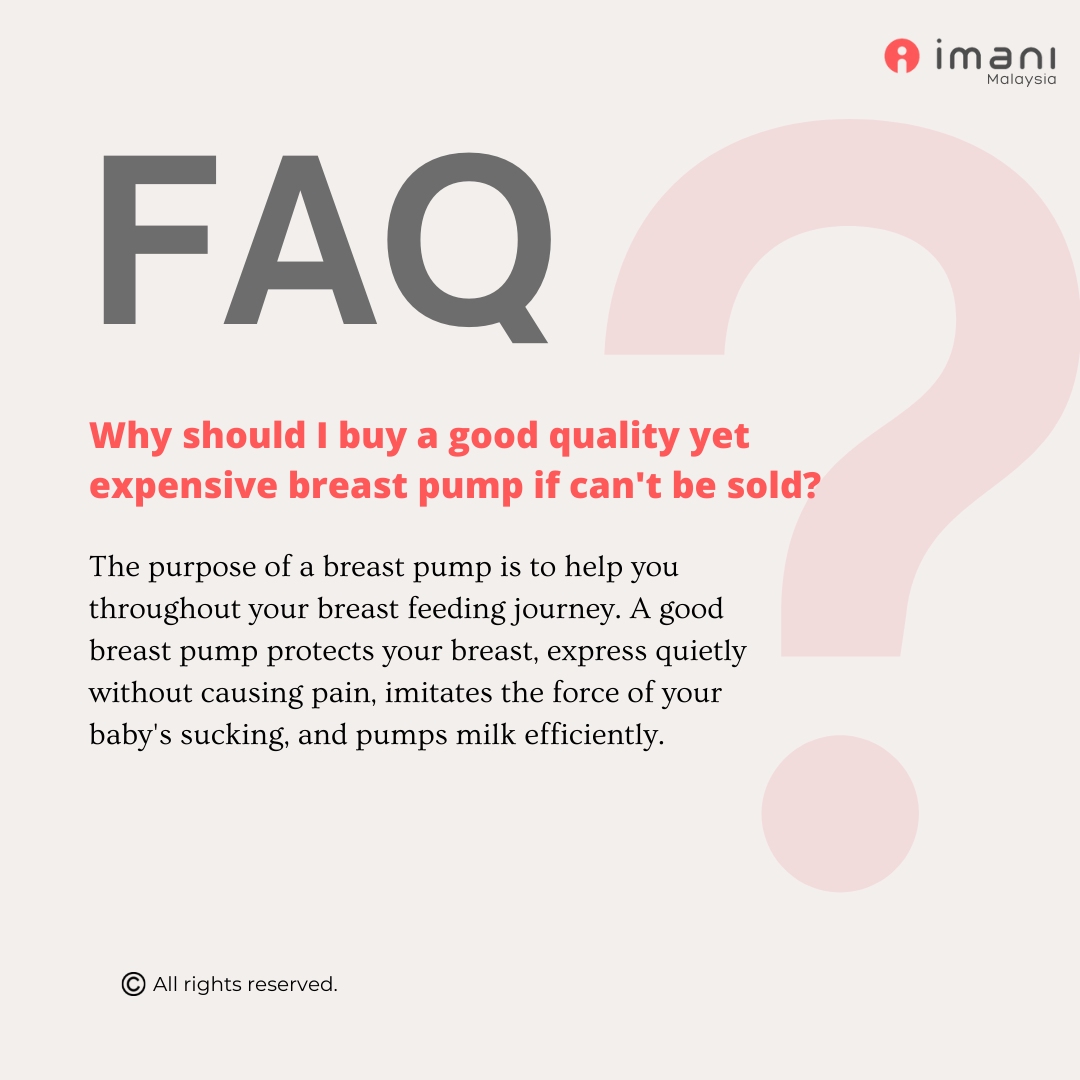
What should I do when I stop using my breast pump?
Recycle! You can recycle yourself or even ask your breast pump seller if they can recycle your breast pump.
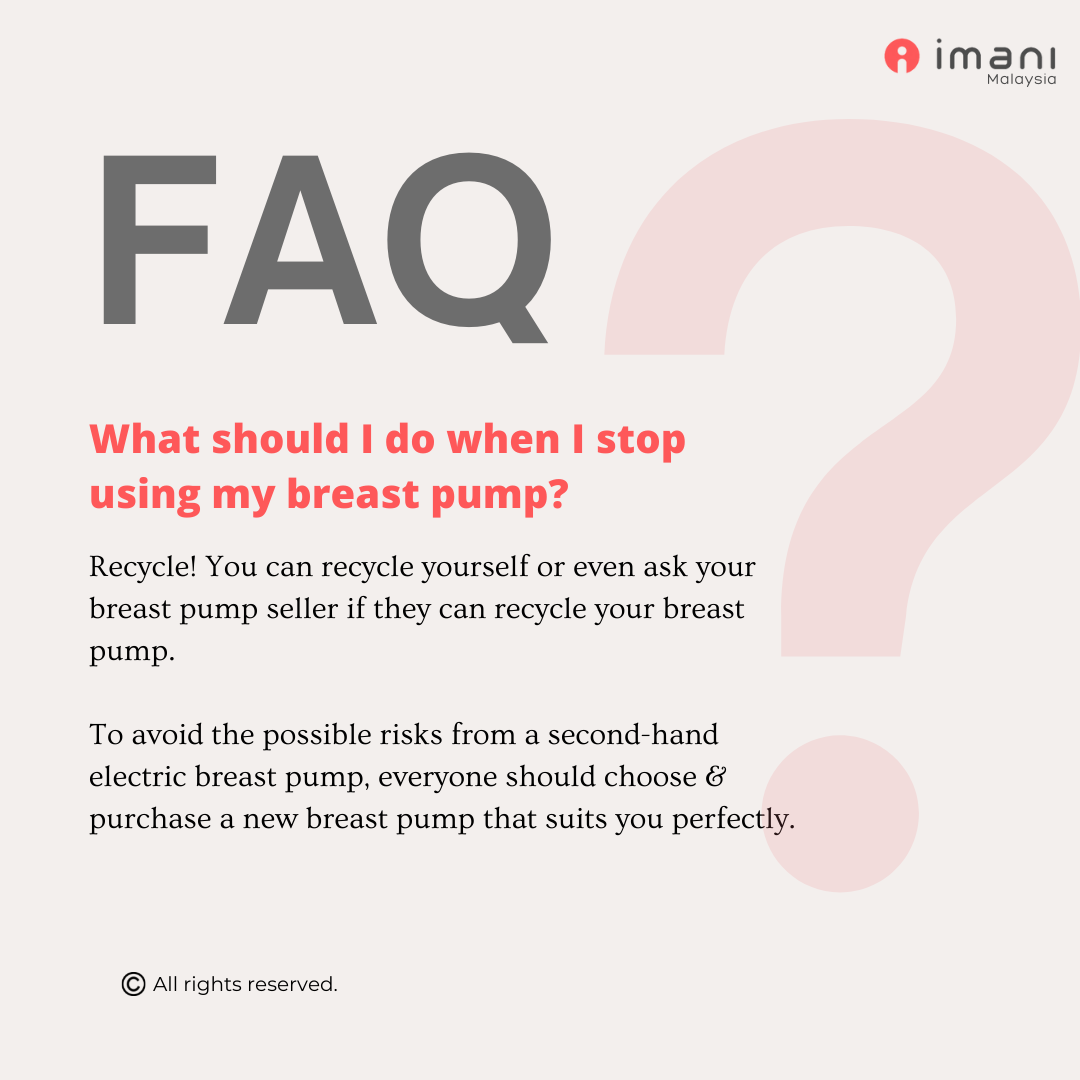
In order to avoid the possible risks from a second-hand electric breast pump, everyone should choose & purchase a new breast pump that suits you perfectly. Mothers must understand that a breast pump is not just a machine, it connects us and our babies intimately.
Let’s be a responsible mother by saying NO to second-hand breast pumps, and don't sell or give your used breast pump to others too! Every mother wants their babies to be healthy too!
_____________________________________________________________________________
Disclaimer:
Pictures of the inside of the breast pump will be shared below.
The main purpose of sharing these pictures is to give everyone a clear idea of the risks of second-hand breast pumps.
The brand and product are not the point, this is just a few examples as teaching material, no defamatory intent.
Basically, all breast pumps no matter from which brand has such risks, please respect the intention of this article and do not take them out of context.
Learn from these examples instead of slandering them.
Some of the cases above are caused by human negligence. These might be caused by the wrong usage and wrong milk pumping position.
Even the best breast pump has these risks. If the usage is not correct, it will accelerate the occurrence and seriousness of the problem.
_________________________________________________________________________________________


